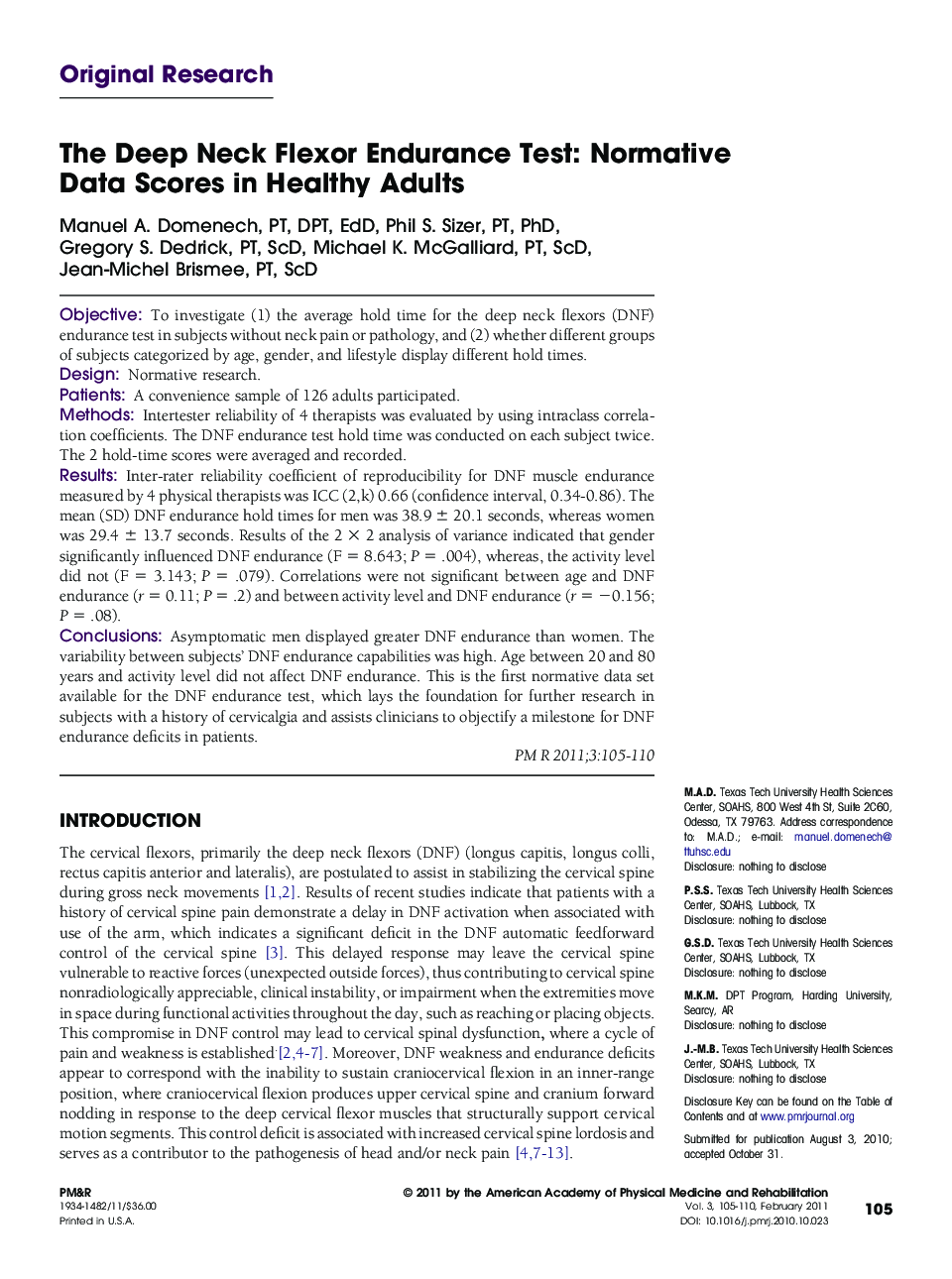| Article ID | Journal | Published Year | Pages | File Type |
|---|---|---|---|---|
| 2707834 | PM&R | 2011 | 6 Pages |
ObjectiveTo investigate (1) the average hold time for the deep neck flexors (DNF) endurance test in subjects without neck pain or pathology, and (2) whether different groups of subjects categorized by age, gender, and lifestyle display different hold times.DesignNormative research.PatientsA convenience sample of 126 adults participated.MethodsIntertester reliability of 4 therapists was evaluated by using intraclass correlation coefficients. The DNF endurance test hold time was conducted on each subject twice. The 2 hold-time scores were averaged and recorded.ResultsInter-rater reliability coefficient of reproducibility for DNF muscle endurance measured by 4 physical therapists was ICC (2,k) 0.66 (confidence interval, 0.34-0.86). The mean (SD) DNF endurance hold times for men was 38.9 ± 20.1 seconds, whereas women was 29.4 ± 13.7 seconds. Results of the 2 × 2 analysis of variance indicated that gender significantly influenced DNF endurance (F = 8.643; P = .004), whereas, the activity level did not (F = 3.143; P = .079). Correlations were not significant between age and DNF endurance (r = 0.11; P = .2) and between activity level and DNF endurance (r = −0.156; P = .08).ConclusionsAsymptomatic men displayed greater DNF endurance than women. The variability between subjects' DNF endurance capabilities was high. Age between 20 and 80 years and activity level did not affect DNF endurance. This is the first normative data set available for the DNF endurance test, which lays the foundation for further research in subjects with a history of cervicalgia and assists clinicians to objectify a milestone for DNF endurance deficits in patients.
